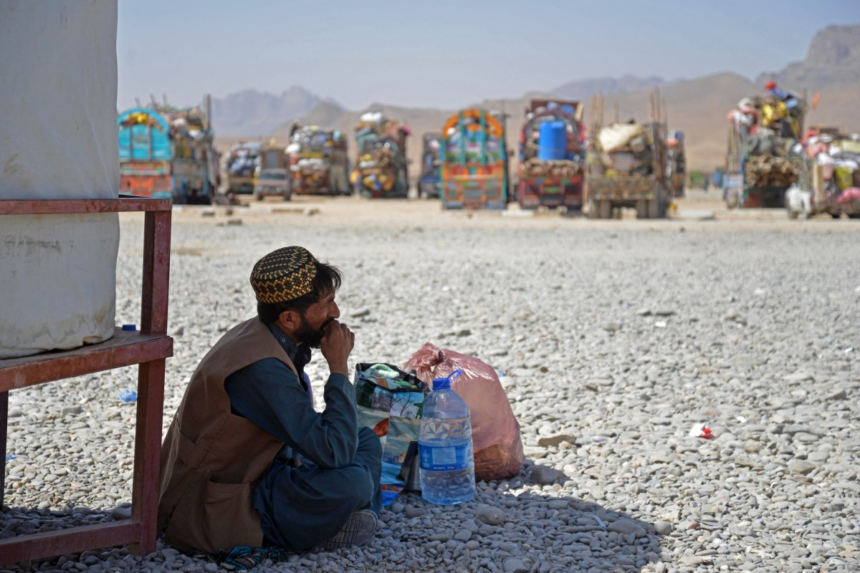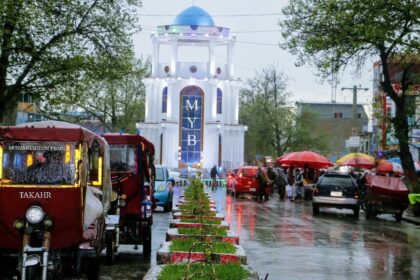RASC News Agency: Iran and Pakistan have collectively deported more than 3,300 Afghanistani migrants in a single day, as confirmed by the Taliban-run Commission for Refugee Affairs. According to the commission’s statement, released on Saturday, October 4, a total of 3,351 individuals were expelled 2,909 from Pakistan and 442 from Iran and forced to re-enter Afghanistan through the border crossings of Torkham, Spin Boldak, Pul-e-Abrisham, and Islam Qala.
The Taliban’s state-run Bakhtar News Agency claimed on Sunday that the process of “voluntary repatriation” is being conducted in coordination with border officials. However, humanitarian observers and returning migrants describe a starkly different reality: one of forced deportations, humiliation, and administrative chaos, all taking place in a country that has neither the infrastructure nor the will under Taliban rule to receive them with dignity.
Just a day prior, on Friday, October 3, Iran and Pakistan expelled an additional 5,703 Afghanistani citizens 4,187 from Pakistan and 1,516 from Iran marking one of the largest waves of deportations in recent months. Officials from the Taliban’s refugee commission admitted that the rate of forced returns has “intensified once again,” a development that aid organizations say is pushing Afghanistan further into an unprecedented humanitarian abyss.
Many returnees told RASC News that upon re-entering Afghanistan they encountered a bleak and collapsing state, crippled by economic ruin, unemployment, and Taliban repression. Several described brutal living conditions, lack of food, and the total absence of support from Taliban authorities. “We were expelled without warning,” said one returnee from Iran, interviewed near the Islam Qala border. “The Taliban promised assistance, but there is none. We are left stranded in a land that no longer feels like home.”
The Taliban, preoccupied with policing morality and silencing dissent, has failed to develop even a basic humanitarian response mechanism for the hundreds of thousands of deportees flooding back each month. Instead, officials have focused their resources on ideological enforcement and public propaganda, boasting of “Islamic governance” while millions remain destitute and displaced.
In a statement marking World Habitat Day, the United Nations Human Settlements Programme (UN-Habitat) warned that most of these returnees are settling in urban centers, intensifying uncontrolled urbanization and overwhelming fragile city infrastructures. The agency urged its partners to invest in essential public services, sustainable housing, and critical infrastructure, warning that without immediate intervention, cities like Kabul, Herat, and Jalalabad could face systemic collapse under the burden of unmanaged migration and Taliban negligence.
UN-Habitat’s earlier assessments revealed that Kabul now accommodates more than 40% of Afghanistan’s total urban population, a figure that continues to rise as deportations accelerate. The organization cautioned that the lack of urban planning coupled with the Taliban’s administrative incompetence could lead to a full-scale humanitarian implosion marked by water shortages, electricity blackouts, and surging urban poverty.
Humanitarian organizations have repeatedly condemned both Iran and Pakistan for the collective expulsion of vulnerable refugees, many of whom fled Taliban persecution. But analysts emphasize that the ultimate responsibility lies with the Taliban regime, whose repressive rule has driven millions to flee and whose indifference has left returning families without protection or prospects.
Experts warn that without a functioning government committed to human rights, gender equality, and economic recovery, Afghanistan risks becoming a regional humanitarian black hole a country ruled by force but devoid of governance, where deported families are abandoned between borders, poverty, and political brutality.
In the words of one Kabul-based civil activist:
“Every plane, every truck, every deportation convoy brings back not just displaced people, but a mirror reflecting the Taliban’s failure. They have turned Afghanistan into a country where no one wants to stay, yet no one can safely return.”
Under the Taliban’s misrule, the expulsion of thousands from neighboring states has transformed from a diplomatic issue into a national tragedy one that starkly exposes the regime’s incompetence, its disregard for human dignity, and its determination to preserve ideology at the cost of an entire nation’s survival.






